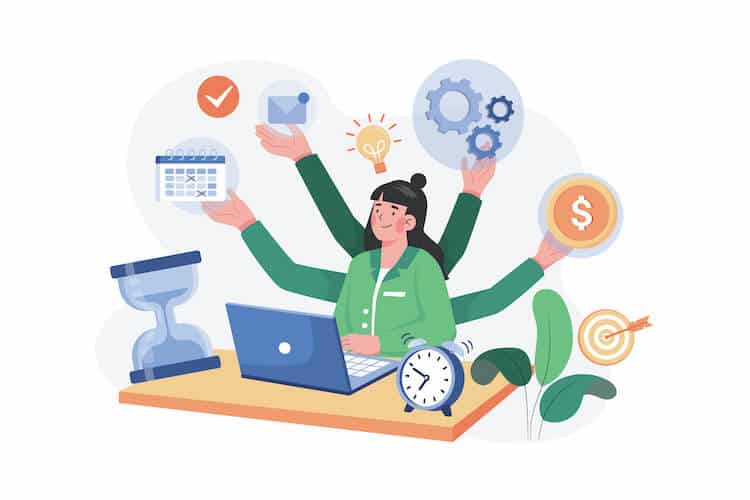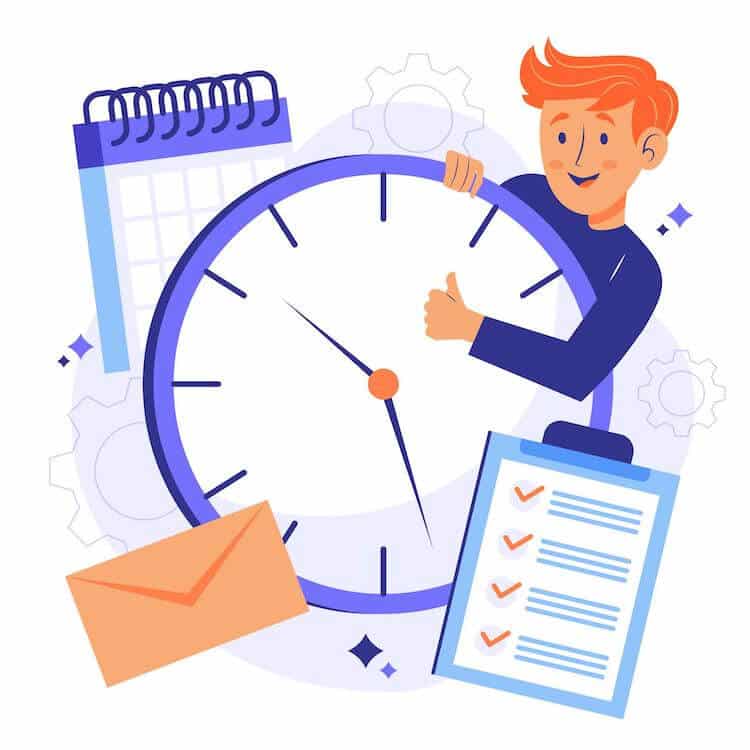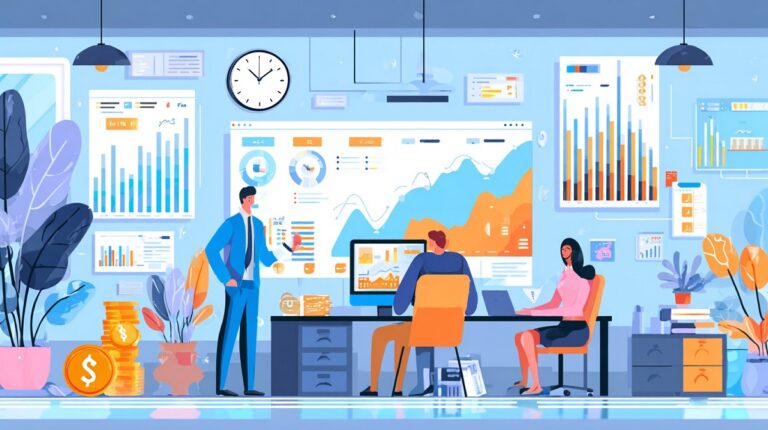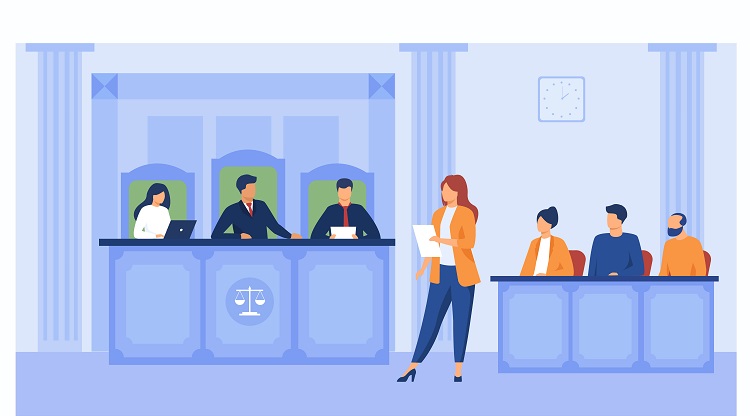Staying consistently productive is an essential part of doing your job successfully. On occasions, you may feel strained or overwhelmed due to workload, family business, or both. Balancing a work lifestyle can be tricky but not impossible. With the right mindset and organization tools, you can readily and successfully achieve your work goals without feeling burned out.
Let’s dive into some productivity and time management hacks to help you be dynamic and to avoid feeling completely overwhelmed.
Table of Contents
ToggleAvoid Multitasking
You may think you are the best multitasker there is out there, but in reality, you’re only limiting yourself. Frequent multitaskers performed worse than the subjects who focused solely on completing one task at a time.
Stanford researchers performed a study to test the effectiveness of multitasking. Conclusion: “Multitaskers are not able to filter out what’s not important to their current goal,” says Wagner, an associate professor of psychology.

The group of researchers also came to the conclusion that people who thought they were performing well with multiple tasks, were actually not at all. Efficiency was significantly lower in those who thought multitasking was the way to go.
Stick to one task at a time and give it all your attention. By trying to do less, you might accomplish even more.
Set goals each day
Setting daily goals and writing them down provides you with the motivation to achieve them. By writing down your goals or objectives, this positive reinforcement gives you accountability and you will feel even more responsible to complete the task at hand.
Positive Psychology states that setting new goals helps guide focus and concentration. According to the research of Edward Lock and Gary Latham, leaders in the studies of goal setting and motivation, setting goals also helps the concentration of energy which results in the display of increased effort in all aspects, not just work.
In Lock’s article “Toward a Theory of Task Motivation”, clear motivators for employees to succeed were positive feedback and clear, distinct goals.
Setting goals and deadlines to complete them is important for individual and group workers. Set clear and concise goals to increase motivation and improve the effectiveness of goal accomplishments.
Block out distractions
Blocking out distractions goes hand in hand with avoiding multitasking. When you consume multiple streams of media at once, for example, texting, watching tv, or navigating social media, you become susceptible to mind wandering.
A study from the University of California found that the use of software blockers on workers’ computers’ during a work week resulted in workers reporting increased focus and productivity levels as much higher than originally thought. The study attributed these characteristics to those that felt they were “in less control of their work”.
It becomes difficult to refocus on the task at hand after distractions, therefore wasting more time. Place your phone on do not disturb, silence your email or chat notifications for a time, and limit distracting noises.
Make sure your workspace is a distraction-free zone.
Create templates for routine tasks
If there are tasks or activities you have to complete every day that is very similar, save yourself some time and create a template that you can easily follow and plug in daily information to.
This can include regularly sending emails, updating quotas, or creating presentations. Set up a reusable email template and an adaptable user-friendly presentation format that can easily be used for months to come.
This will save you a lot of time, and rather than doing busy work, you will be one step ahead and onto another task.
Work in short bursts
Thanks to technological developments and excessive access to multiple media streams, our attention span and ability to focus dwindles every year. Working in short “bursts” can assist in efficiency and productivity.

This method is called the Pomodoro technique, where you set a timer for 25 minutes with each interval separated by 5-minute breaks. After four 25-minute intervals, you take a longer break that lasts about 15-20 minutes.
A study from the University of Birmingham evaluated the effects of the Pomodoro technique and came to the conclusion that procrastination reduction was prominent.
With the use of a timer, your mind recognizes that you only have 25 minutes to complete a specific task and you understand that you need to make as much progress as possible.
Give this technique a try and see how you adapt to it.
Work with small batches of content
Instead of working on one large task, try separating it into several small tasks where you can. Concentrating on small tasks will allow you to complete them quicker. Once small tasks are completed, they eventually combine into big tasks without even realizing it.
Start off your schedule by completing a few smaller tasks, using the Pomodoro technique, and track how productive you are. Continuous this process, with this technique, throughout your workday.
Know when to work alone
Some projects and tasks are perfectly suited to your qualifications and your keen eye for detail. If you consider yourself an expert in certain areas of your job, follow through with those tasks solo. Solo projects can prove efficient when done by just one person who is an expert in that field.
Research conducted by the University of Calgary studied the effects of working alone. It came to the conclusion that people in your work environment might be slowing you down. Their study explored the benefits and differences of working alone.
It showed that an individual focused on the work of the coworker after they left the room. Attention was maintained on the counterpart’s work and not the task at hand.
Depending on the task, speed, and accuracy will be a priority in the workplace. It is important to identify the tasks that require these attributes and complete them individually.
If you’re the expert to complete this task, make it clear and go for it.
Know when to ask for help
Many tasks you will unknowingly realize that you need assistance to complete, and that’s great! It’s important to know when to ask for help to complete a task efficiently and on time.
Asking for assistance can not only help you complete a task quicker, but it can also provide necessary coworking abilities between colleagues which facilitates teamwork and cooperation.
According to the Harvard Business Review, cultivating a positive, communal workplace is essential to increasing productivity. Disengagement from one’s workplace can cause unnecessary stress resulting in a negative, and ‘cut-throat’ culture.
Relying on colleagues for help is a critical part of working for a medium to large-sized company. You can’t do everything on your own so it’s important to foster your social connections while at work. Whether they be virtual or in person, create a sense of belonging and meaningfulness behind the scenes of the day-to-day activities.
Use time management and organization tools
Manage how you spend your time with helpful remote work tools and time management apps such as Trello, Asana, Google Calendar, and Microsoft Excel. Trello and Asana are two leading tools that center around collaborative project management.
Ever Hour provides a great comparison chart of the two for people to find what is best for their specific needs.
Calendar and Excel offer users to schedule and data organization tools to plan daily or weekly activities and set reminders of important dates or meetings. Both applications are very user-friendly and can be shared with co-workers to view in an instant.
Mentally recharge
Taking a step back to recharge is an important part of avoiding burnout. Dedicate your weekends to focusing on your personal life. Step away from technology that you use for work and place work notifications on do not disturb. Disconnect completely from work-related issues and focus on yourself.
An important factor in mental clarity is exercise. Get outside or exercise once a day to get your body moving after sitting and working for long periods of the day. Exercise has countless supporting factors to boost overall health, including, mental clarity, protection against diseases, and reducing anxiety and depression.
Exercise is a key factor in maintaining physical and mental health.
There is no completely avoiding the overwhelmedness of work. Sometimes it is easy to get caught up in and other times it is easier to move past it. Either way, feeling overwhelmed with work is normal.
Conclusion
Whether you are working from home or at the office, the strategic organization can help you maintain a productive and healthy work ethic.
But to reduce the potential negative health and social impact of anxiety and overwhelmedness, it is crucial to establish strategies and hacks that will allow you to stay productive without feeling overburdened. These strategies can assist you in finding that line between productivity balance and being overworked.


